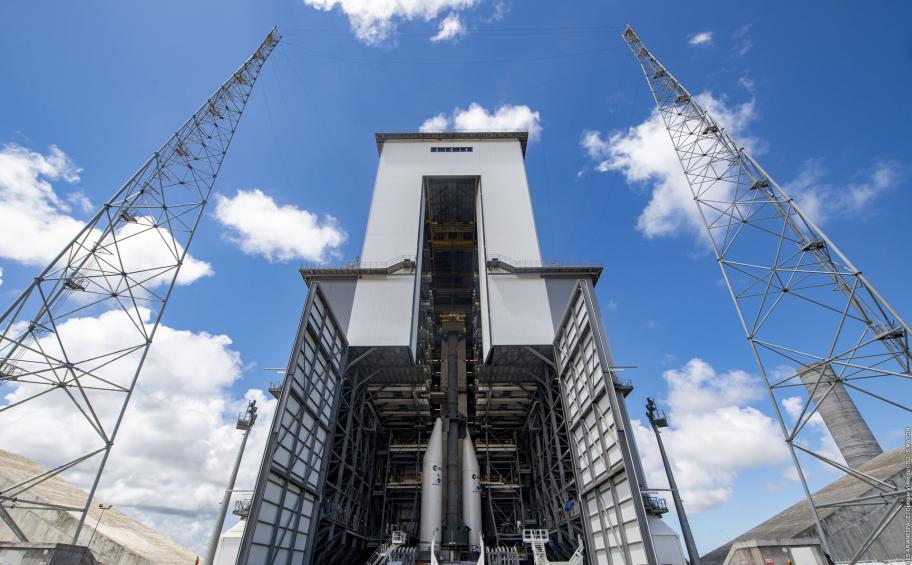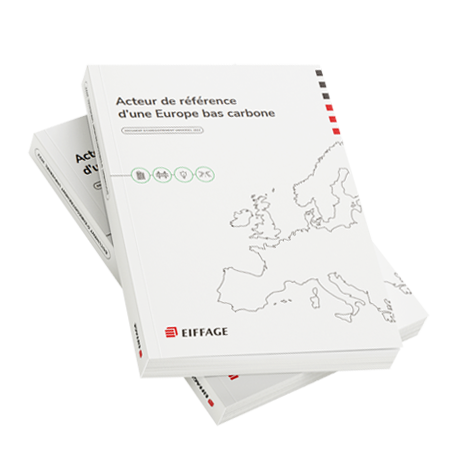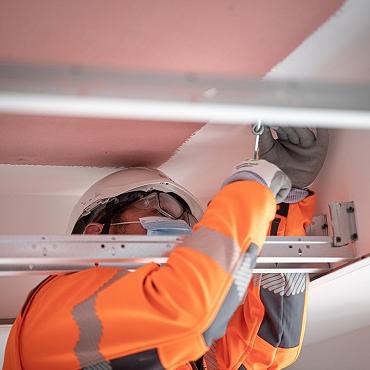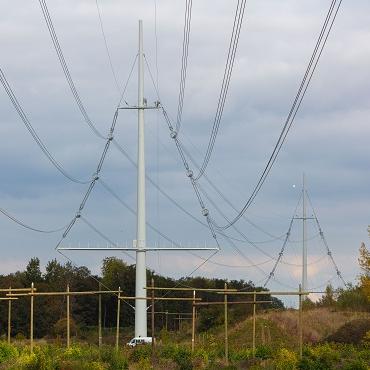10.03.2021
The CNES counts on Clemessy’s industrial expertise to simulate fluid systems using artificial intelligence
Artificial intelligence (AI) is attracting more and more customers. Among them, the National Centre for Space Study (CNES) recently called on Clemessy’s expertise to contribute to developing a fluid system simulator using artificial neural networks (ANN). They aim to optimize the filling of rocket tanks.

The first step of a rocket launch involves filling the tanks with liquid hydrogen (LH2), a fuel with two-phase behaviour, very unstable and difficult to model. The CNES, which excels in particular in complex mathematical modelling to improve control of this critical filling phase, has chosen to consider AI in order to obtain better results. “The principle is very simple. Rather than spending time on mathematically modelling the LH2 filling of the first stage of a rocket, we have a neural network ingest the data from our experience (Ariane 5 et open data). At the output, a simulator is available to validate the process without having to implement real equipment or heavy mathematical model development.” explained Benjamin Lamy, computer engineering monitoring & control operations manager for Eiffage Énergie Systèmes-Clemessy.
AI uses data from the past to “predict” future data more effectively. It also enables real-time simulation of fluid process behaviour (ground and launcher). The demonstrator developed in partnership with the CNES is promising, and could be used on the launchers of the future (Callisto and Themis) during development phases for application software validation and predictive maintenance.
This intuitive IT demonstrator is a first stage for the CNES and Clemessy teams and will contribute to improving the challenge of competitiveness at European level in space and critical industries.
“Beyond working in partnership with the CNES’s prestigious Launcher Management, the challenge of AI applied to the needs of industry is to increase our ability to make sense of information, where the traditional algorithm requires too much time and resources. In future, when you want to test a complex system, all you will need are IT resources,” said Benjamin Lamy.
Today, neural networks and AI are used on a daily basis in industry and the concrete uses are multiplying. They include classification of shapes in the automotive industry, counting heavy goods vehicles at motorway service area entrances and exits (to inform them of the number of places available) and real-time counting of train station users (to regulate station heating levels). Industrial customers are also using AI in increasing numbers to control their energy consumption more effectively.
The fields of AI application are extensive, and the process is beginning to bear fruit, as one of EIFFAGE’s new solutions.
© ESA/CNES/Arianespace/Optique vidéo du CSG - S. Martin
-
 16.07.2024Eiffage Énergie Systèmes strengthens its presence in...Eiffage Énergie Systèmes, through its Dutch subsidiary Eiffage Energiesystemen1, just acquired EKB and recently took a majority stake in Rensen Regeltechniek.
16.07.2024Eiffage Énergie Systèmes strengthens its presence in...Eiffage Énergie Systèmes, through its Dutch subsidiary Eiffage Energiesystemen1, just acquired EKB and recently took a majority stake in Rensen Regeltechniek. -
 10.07.2024Dorsalys modernizes video surveillance and power supply...Eiffage's French motorway concessions APRR and AREA, in charge of maintaining and operating over 2,310km of network, have signed two framework contracts with Eiffage...
10.07.2024Dorsalys modernizes video surveillance and power supply...Eiffage's French motorway concessions APRR and AREA, in charge of maintaining and operating over 2,310km of network, have signed two framework contracts with Eiffage... -
 04.07.2024À Sin-le-Noble (59), Terceo participe à la construction...Douaisis Agglo, la communauté d’agglomération du pays de Douai, fait construire une patinoire olympique à Sin-le-Noble (59). La maîtrise d’œuvre du bâtiment est...
04.07.2024À Sin-le-Noble (59), Terceo participe à la construction...Douaisis Agglo, la communauté d’agglomération du pays de Douai, fait construire une patinoire olympique à Sin-le-Noble (59). La maîtrise d’œuvre du bâtiment est...





